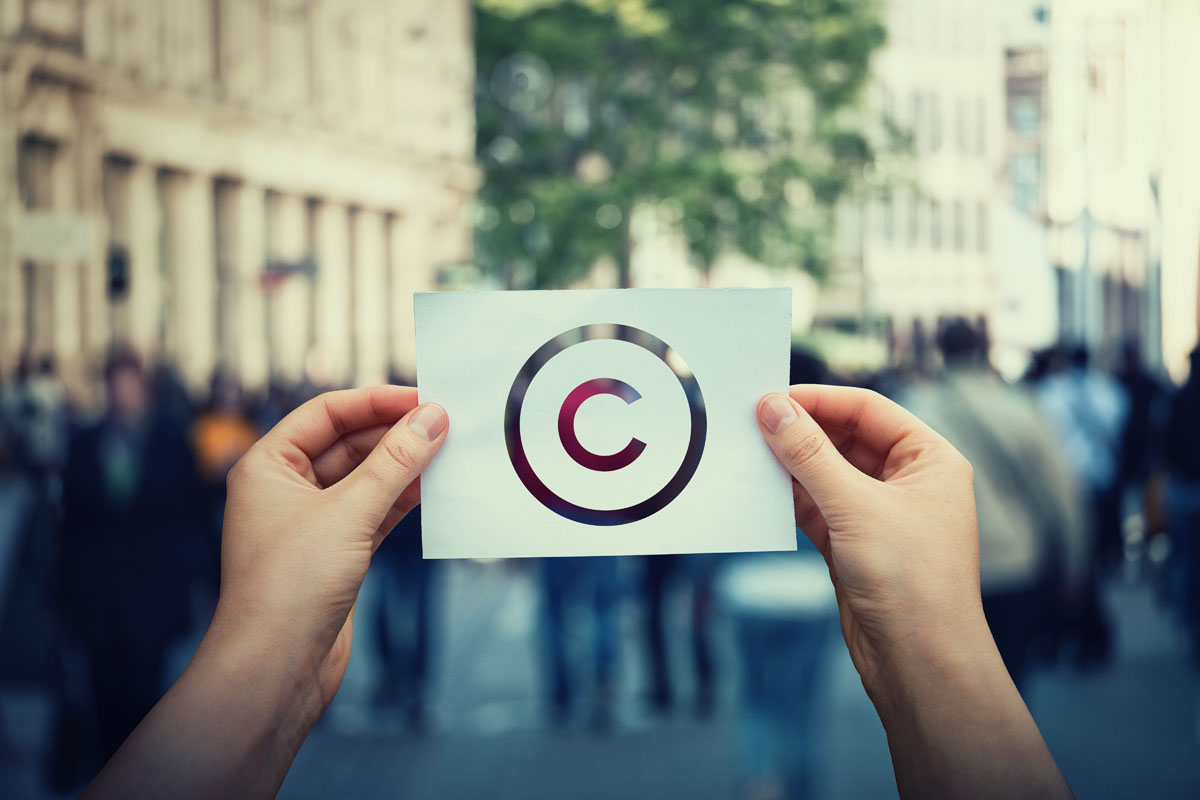On a sunny Thursday afternoon my cohorts prodded me out of a haze of pre-trial preparation and induced me to slay some urban legends about copyright. Though most of this information is available elsewhere, this is a simple primer for anyone who wants to learn the basics of copyright.
(1) No copyright notice ≠ no copyright
Don’t be in a rush to copy text or photographs that don’t bear the magic symbol next to them, for the magic is no more. Although from 1923 to 1977 a work not accompanied by the copyright symbol lacked protection – and is now forever in the public domain – that was then and this is now. In the United States almost every work created after April 1, 1989 is automatically imbued with copyright protection whether it bears a notice or not. Unless there is express notice that the work you want to use carries a share-alike licence or is “copyleft,” you would do well to assume that it is copyrighted and may not be copied without prior permission.
(2) It’s not copyright infringement if I give it away
This is not Lord of the Rings; just because you offer it freely does not mean you get a free pass on copyright infringement. Though free dissemination of copyrighted materials is a lesser harm than infringement-for-profit, you still face substantial liability even if you do not charge a dime. If you have lingering doubts, just hearken back to the not-so-long-ago, to the Napster and Grokster lawsuits, and the piteous case of the 10-year-old girl the RIAA sued for for downloading a handful of songs. If you improperly copy something that has been registered with the Copyright Office, then you potentially face statutory damages in the six-figure range.
(3) If I found it on the internet, it is in the public domain
Uh . . . no. Epic fail. Nothing is in the public domain anymore unless it is really old. Although copyright originally had a term of a mere 14 years, it now goes on . . . and on . . . and on . . . seemingly forever. This is due in no small part to the efforts of our favorite corporate partner, Disney, which engaged in concerted lobbying to pass the Sonny Bono Copyright Extension Act and prevent Mickey Mouse from falling into the hands of 10 year olds in Ohio who want to create animated characters (“Sorry, Steamboat Billy, your comic never made it to the shelves.”). Unless the work has expressly been donated to the public domain or bears some sort of Creative Commons license, beware. Forewarned is forearmed.
(4) But it was fair use!
Says who? The fair use doctrine protects the use of portions of a work for purposes of commentary, news, research, teaching, and — occasionally — parody, but is not a blanket exemption that allows for wholesale appropriation of a work. Thus, quoting select passages from a novel is fair use when writing a critique for the New York Review of Books, but selling copies of someone else’s short stories on your website is not. The area of fair use has experienced something of a sea change in recent years, and spawned a veritable hornet’s nest of conflicting opinions. Fair, of course, is a subjective interpretation, and your interpretation of fair might not jibe with what the copyright holder thinks, nor with what a judge thinks. So, without dissuading you from sampling, dabbling, fan fiction, or any other form of homage to your favorite writers and authors, proceed with caution.
(5) If they fail to protect their rights, they lose them
Incorrect. You are thinking about trademark law, which demands vigilance and a never-ceasing search for evildoers in order to maintain the sanctity of the trademark. Copyright is never lost these days, unless it is explicitly given away.
(6) It is okay to create stories based on other works
[Loud honking noise stage left] Again, no, not usually. Fan fiction which uses characters and places from other works is a no-no, as it is clearly a derivative work as defined by copyright law. Even if you spent three years writing the next Twilight book, during which time you expended an enormous amount of creative energy, you would still be engaging in copyright infringement. That said, there is a thriving fan fiction community on the internet, and a number of authors actively encourage fan fiction as a source of viral advertising (e.g., Lois McMaster Bujold). Moreover, some enterprises, while not actively encouraging fan fiction, do little to dissuade their loving readers from posting unauthorized works, presumably on the theory that no publicity is bad publicity.
And that ends today’s diatribe about the perils and pitfalls of copyright infringement. Stay tuned for cutting edge commentary on copyleft and the creation of the creative commons, coming to an RSS reader near you soon.

